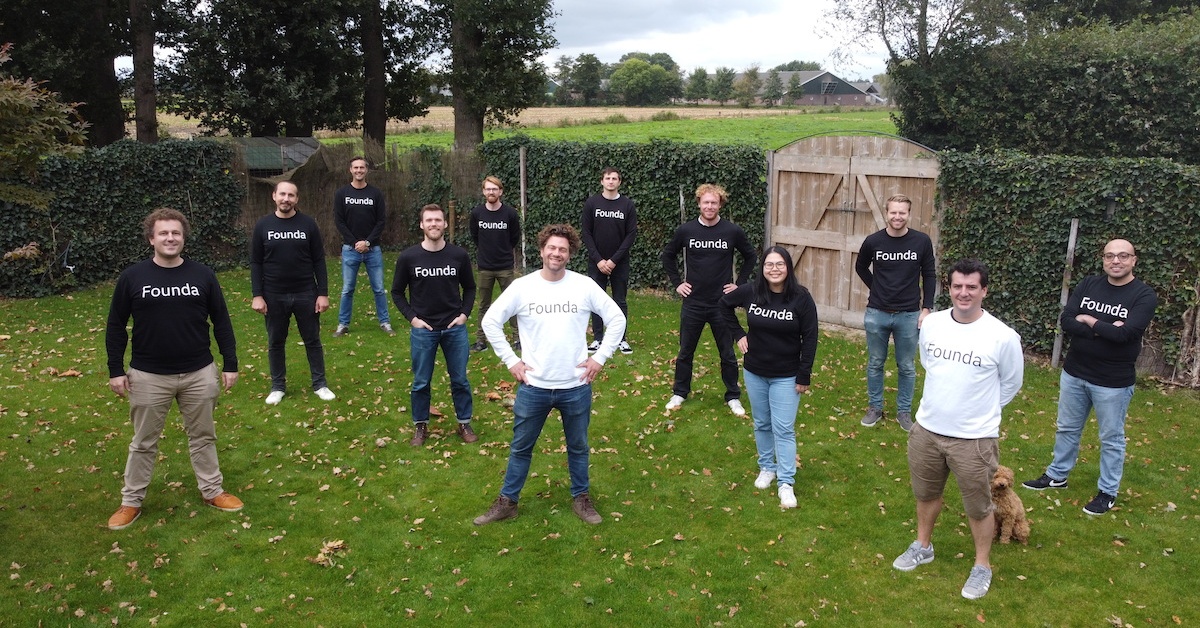Image credit: Founda
Founda Health is a technology company that builds infrastructure for the global healthcare sector. Today, this Amsterdam-based company has announced that it has raised $15M (nearly €12.3M) from a group of healthcare and fintech entrepreneurs.
According to the company, this investment would help the company with international expansion, along with financing further development of the platform and integrations with Electronic Health Record (EHR) systems.
Platformisation
Founda Health is based on the platform model and brings it from the fintech to the healthcare sector. It creates a bridge between the systems used by healthcare providers and innovative health applications around the world. It claims that this is the easiest way for collaboration between systems and providers, without high set up or maintenance cost.
“Platformisation is a proven model from fintech and other industries to radically cut costs and boost innovation. An example: it requires multiple fintech solutions in the background to technically integrate, collaborate and process a secure credit card transaction. Nowadays, this process of making a payment, is very intuitive for the consumer,” Founda Health explains in a press release.
“The same connectivity, collaboration and security standards are currently being introduced by Founda to healthcare, combined with a completely new business model,” it adds.
The Foundation
Founda Health was founded in 2019 by serial tech entrepreneur Jan Joost Kalff. Before founding Founda Health, Kalff co-founded a company called Dimebox, which was acquired by a US-based company. Talking about why he created Founda Health, Kalff tells Silicon Canals, “After selling Dimebox to a large US-based payment company, I had seen first-hand the positive impact it can have on an industry and the end-user when platforms are introduced. With many lessons learned in the pocket, we came up with Founda.”
He further adds, “In the beginning, it was industry agnostic, and we took our time to truly build a strong FOUNDAtion ;). Because we were sure that our API was going to serve a legacy industry, meaning the platform needed to have a strong and extremely secure foundation to serve well. Too often you see start-ups trying to close new business and making complex integrations before designing a scalable solution, cutting the corner early in the build will for sure result in scaling problems later in the process.”
Although the company, launched just under two years ago, managed to secure a significant seed stage investment, it has not been all smooth sailing for Founda Health. It faced several initial challenges while setting up the firm. “The initial challenges were all about introducing a way of thinking around healthcare IT, and finding the rebels in the market who were willing to make a change and take a leap with us. Our luck has been that we already proved ourselves in fintech by building a gateway and handling highly sensitive data,” says Kalff.
The process behind the platform
Founda Health’s platform is used by healthcare IT systems, applications and organisations of every size – from startups to large hospitals – for connectivity. It builds scalable infrastructure into healthcare IT systems, consolidating a variety of data standards into a single API.
The company claims its success-based pricing model enables for faster collaboration between hospitals and healthcare applications. The platform enables hospitals and doctors to collaborate with health apps and exchange data. They can select their preferred applications and test and implement them into their workflows with Founda Health’s platform without any costs.
“The Founda Health service will always be free for healthcare providers and they can request an unlimited amount of connectivity. Our partnerships with EHRs allow for this new form of collaboration. Our health API provides a pay-per-usage payment model, so we get a fee based on the successful usage of our API, which we share with our partner systems,” says Kalff.
“The past year we’ve seen a steep rise in demand from international systems and health apps for our platform model since the economics and shifting dynamics create a no-brainer for them. Hospitals can start to pick and choose apps to collaborate with and eventually the patient benefits from this development,” he adds.
The company claims to help healthcare applications scale by connecting them with international EHR systems and opening new markets for them, enabling hospitals to choose the best possible apps from a big offering. For the EHR partners, it takes care of all required localisation per market.
Growth & Expansion
Kalff tells SC that the company is already connected with one of Europe’s largest EHR systems and it will soon announce its partnership with one of the largest globally. “We are currently building integrations with some of the largest EHR systems in the world. This enables us to collaborate with healthcare organisations worldwide. Being a young company, we are very agile and usually decide the long-term strategy based on learnings from experiments. We are now setting up experiments for a number of markets (eg. UK, Belgium, Germany) and we will expand where we see the most traction.”
Currently, it has a team strength of 25 and has 50 roles open in all teams – engineering, product, sales, marketing, and HR.









